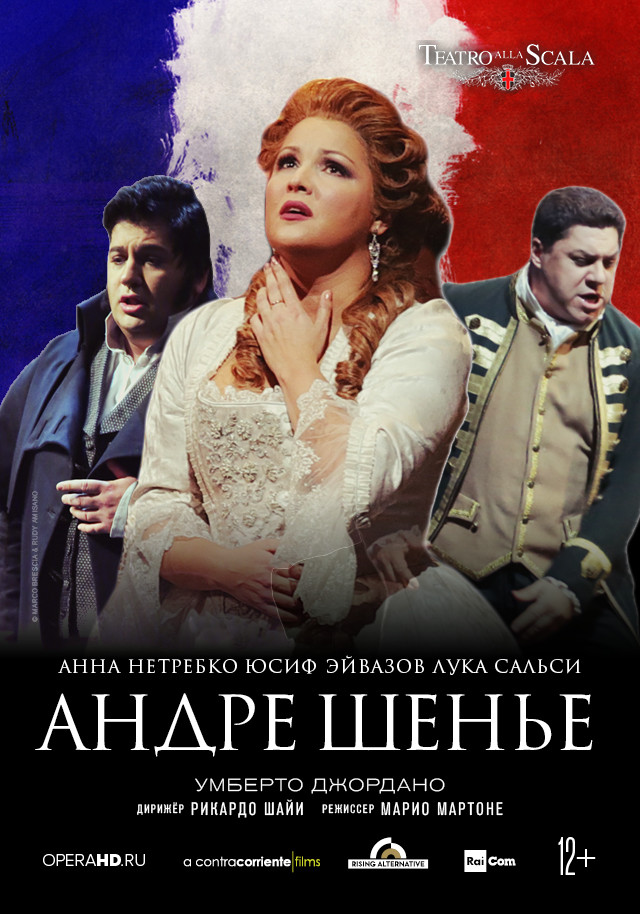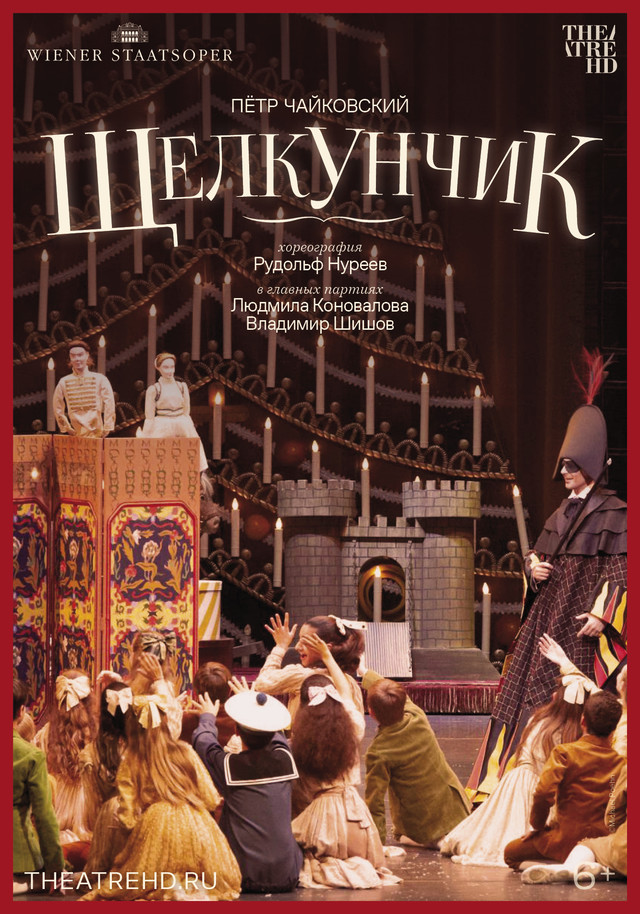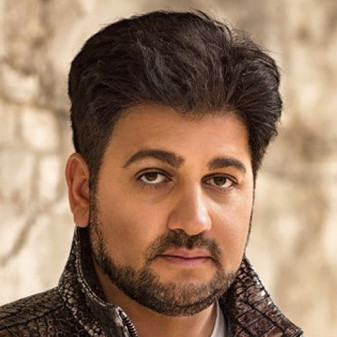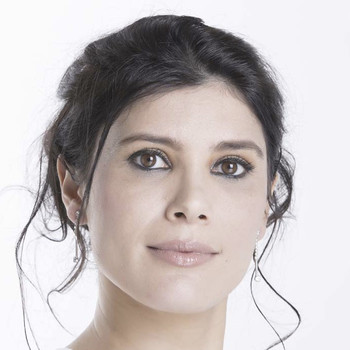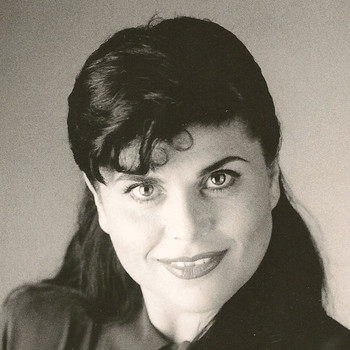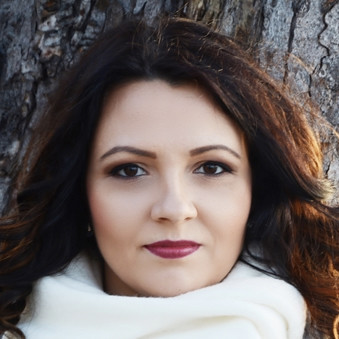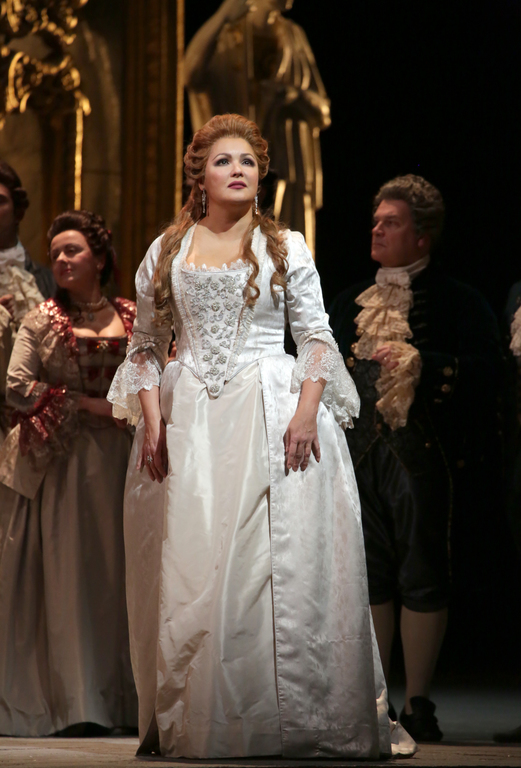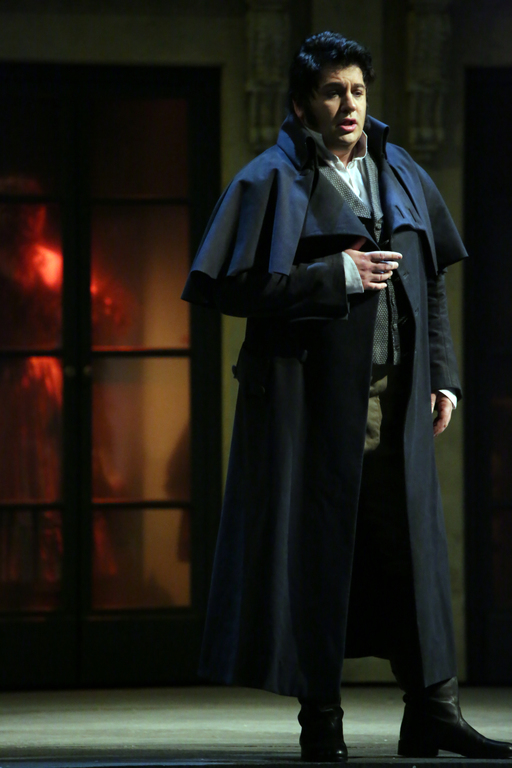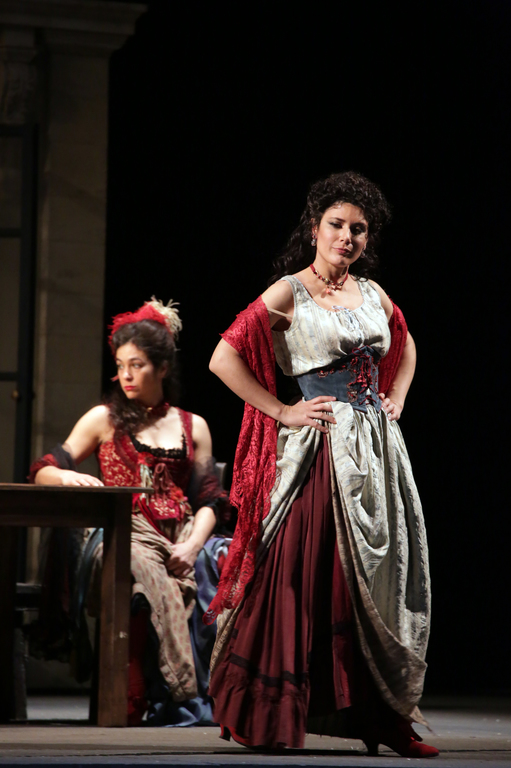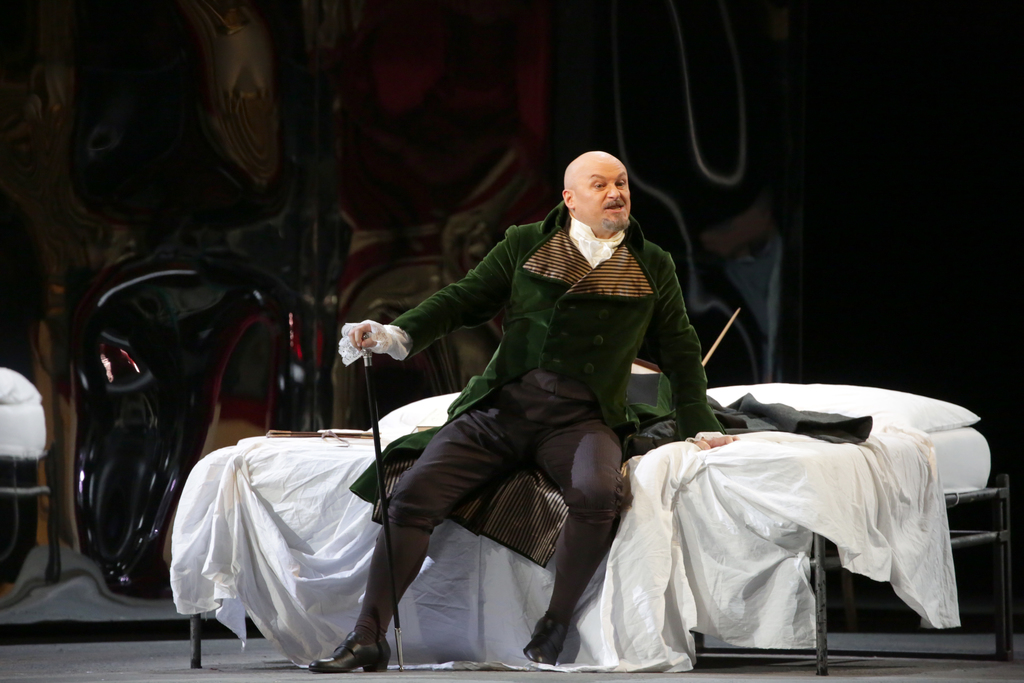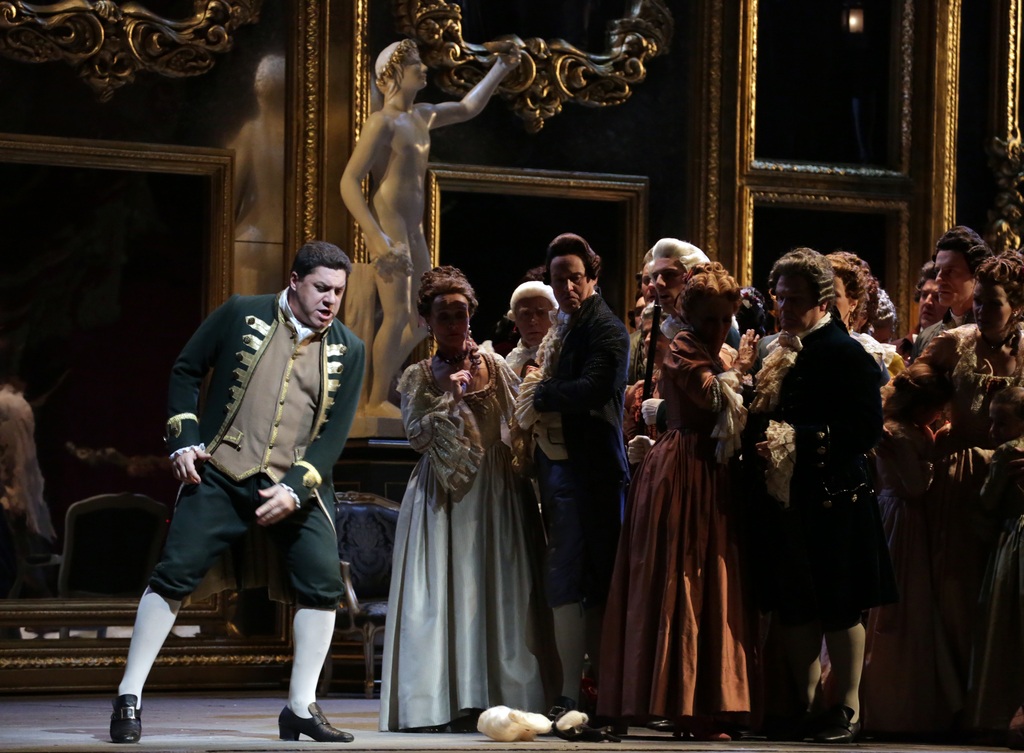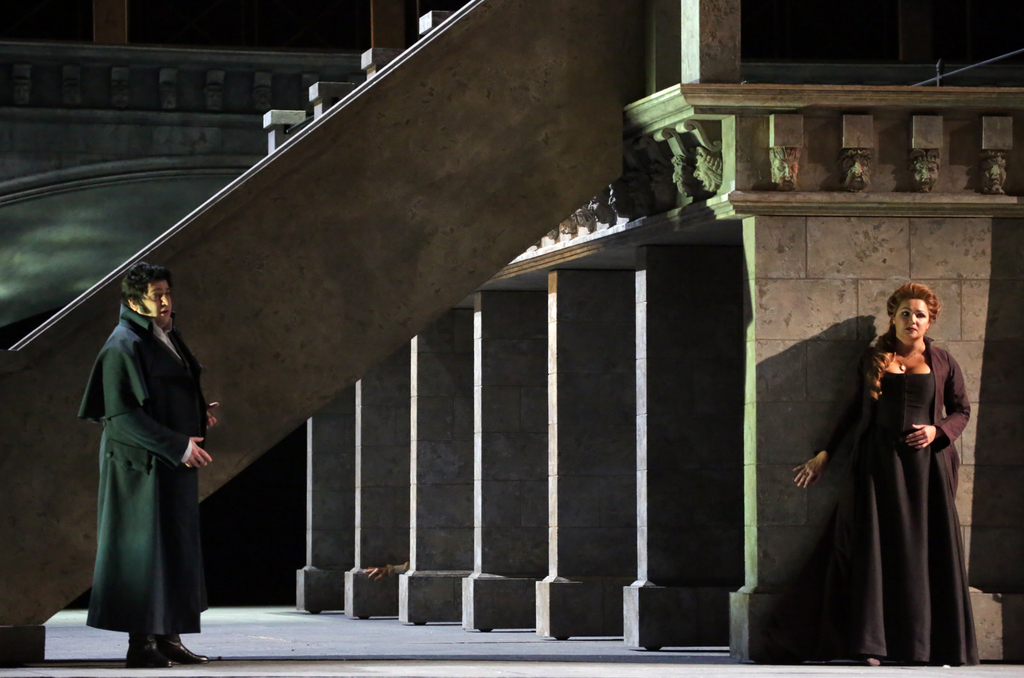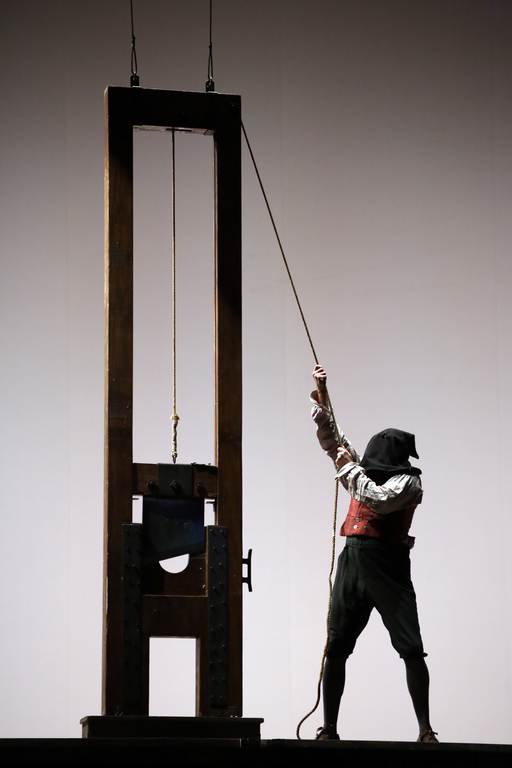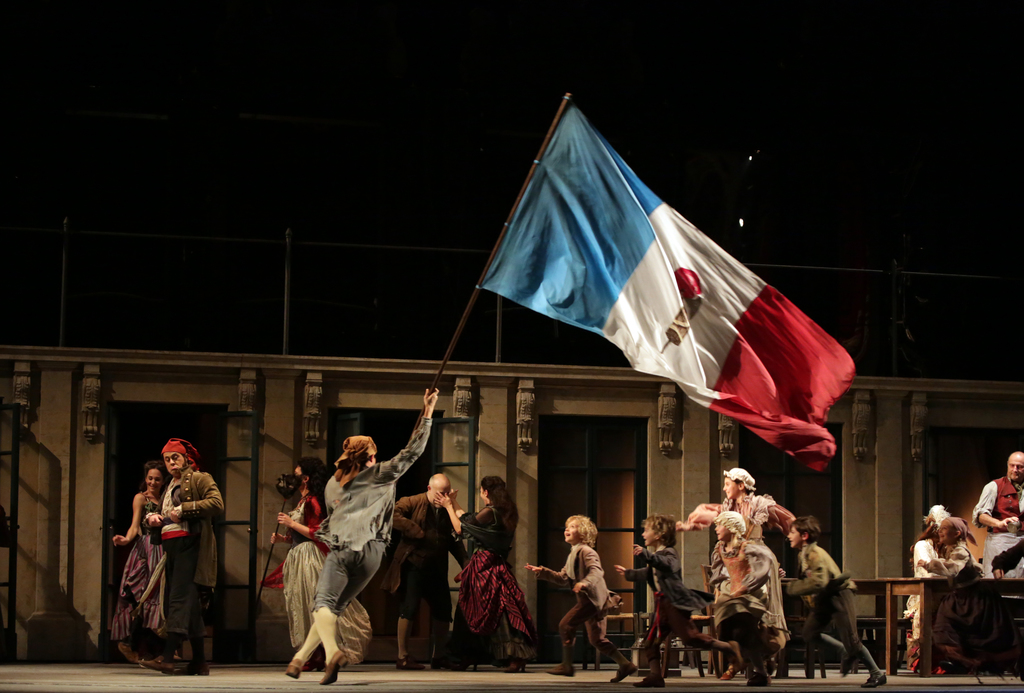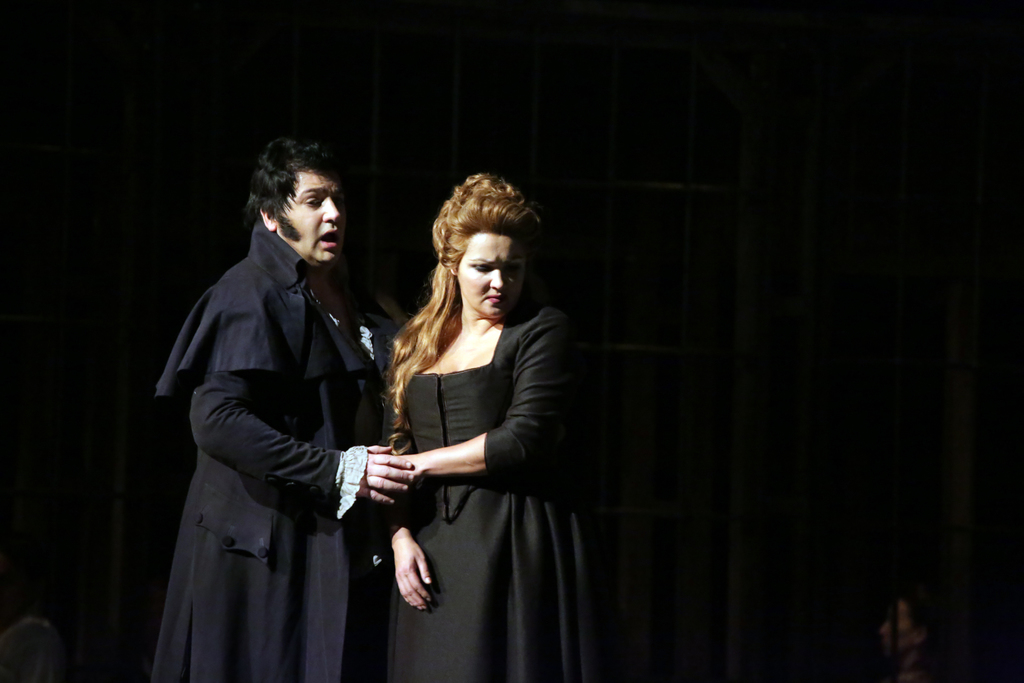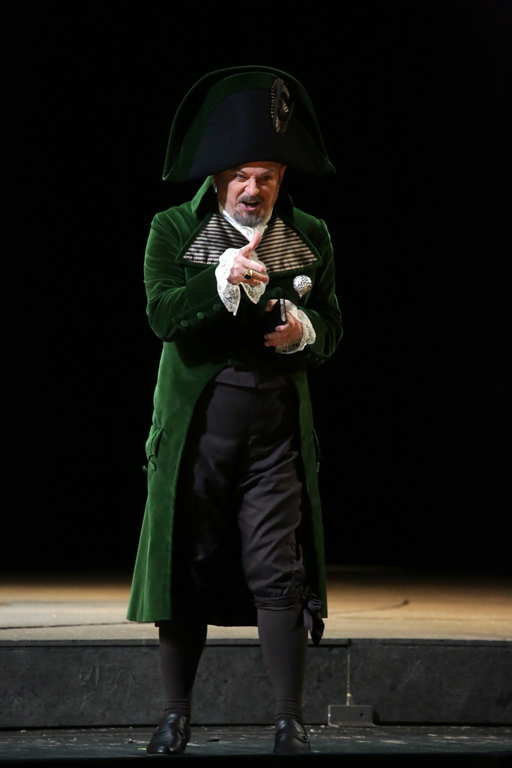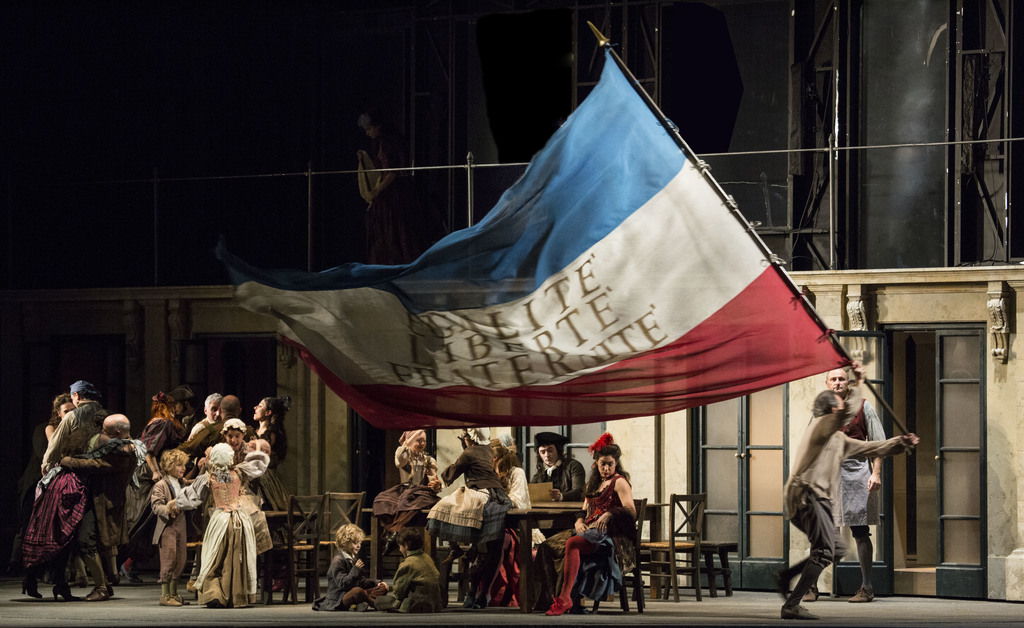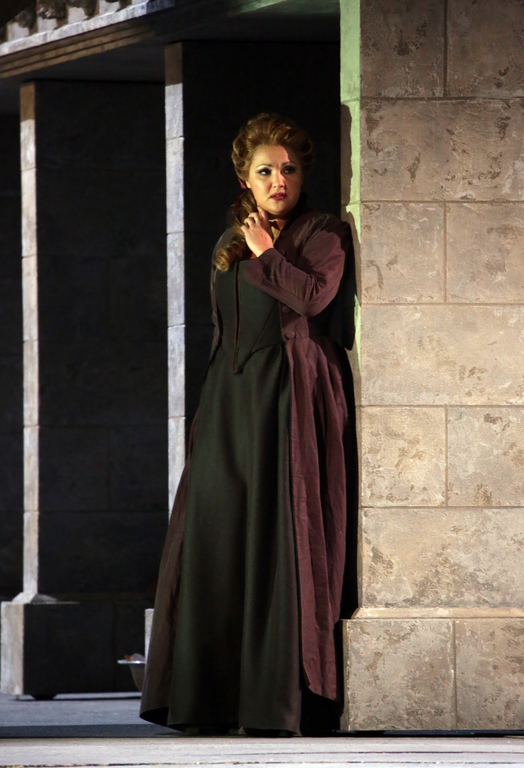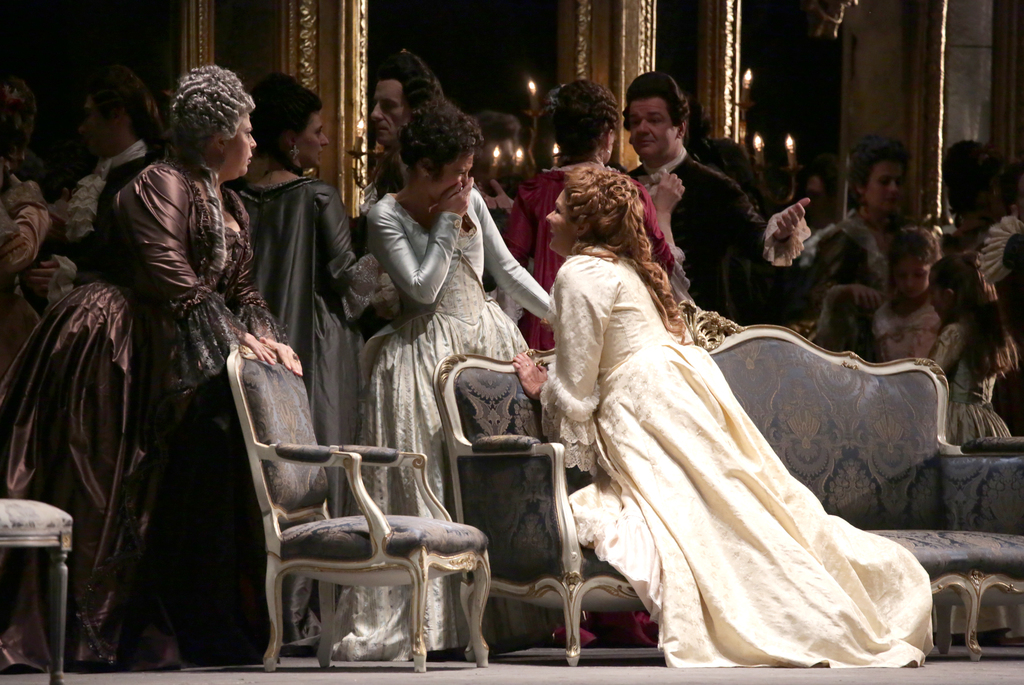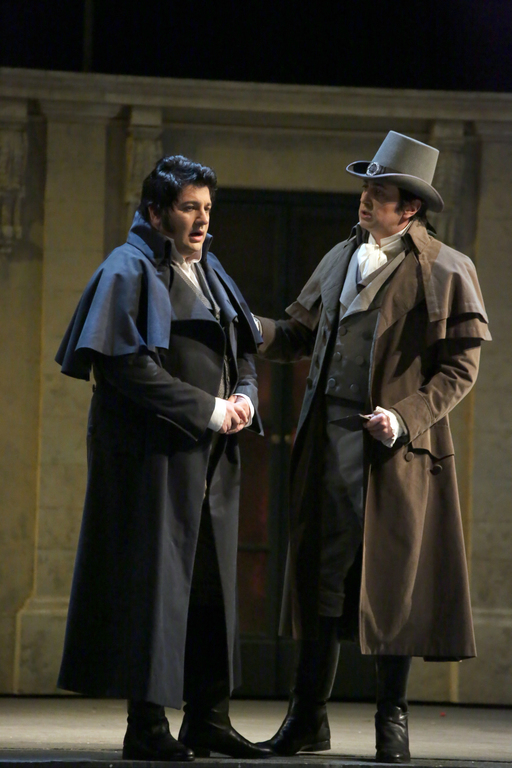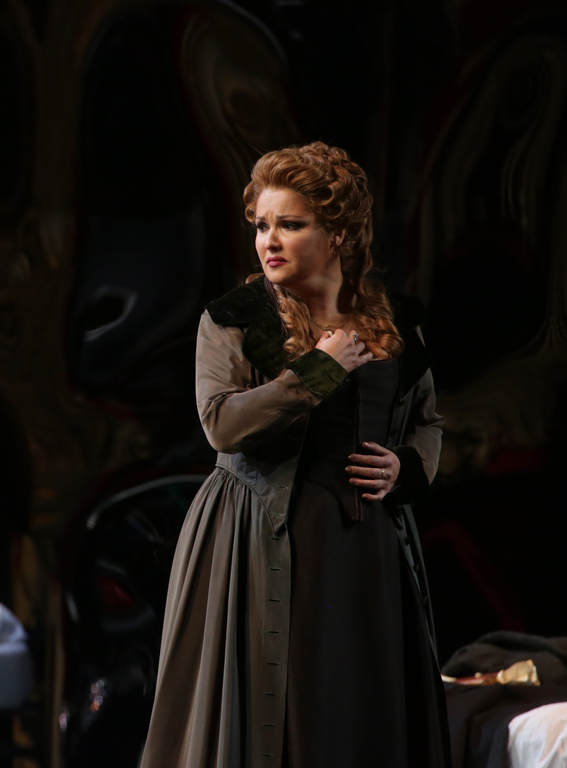Act I
While the first stirrings of revolution can be felt on the streets, in a ballroom of the Château of Coigny preparations are under way for an artistic soirée. Gérard, one of the servants and a future leading figure of the Revolution, expresses his hatred of the aristocracy. He is bitter that his aged father, in spite of his frailty, is still forced to work. The poet Chénier, who is among the guests, at first does not wish to recite any poetry, but provoked by the young hostess Maddalena, he improvises verses which are critical of the excesses of the rich and reveal the spirit of a new age. Maddalena is moved to apologize, the guests at the château make no comment. When Chénier leaves, Gérard, who agreed with him enthusiastically, leads a group of ragged beggars into the ballroom to show the assembled aristocrats the underside of their wealthy lifestyle. He is dismissed on the spot. The commotion dies down and the merrymaking continues.
Act II
Four years later Chénier, disappointed by the course the Revolution has taken, is waiting at a café on the Seine for an unknown woman who has written to ask him for a rendez-vous. Roucher brings Chénier a passport and urges him – without success – to leave Paris before the Revolutionary Tribunal can get hold of him. Maddalena appears; herself now impoverished in the turmoil of the Revolution, she is seeking Chénier's help. As the two of them make to leave the dangerous place in the city center, Gérard – now a revolutionary leader – enters. He has been following Maddalena and tries to seize her, but Chénier defends her, wounding Gérard in a sword fight. Gérard recognizes the poet he admires and urges Chénier to flee and to look after Maddalena. The latter has already been escorted to safety by Roucher.
Act III
In the court room of the Revolutionary Tribunal, soldiers are being recruited to fight for the "new liberty". Chénier has been arrested, and Gérard has to write an indictment accusing him of treason. Since he believes the poet is already a doomed man, he abandons all his reservations. Maddalena is admitted and begs Gérard for help. She says she is ready to offer herself to him if it will save the man she loves. Gérard is moved by her magnanimity and vows to use his influence selflessly to get Chénier released. The judges enter and Chénier's name is called. He speaks courageously and proudly in his own defense. In spite of Gérard's appeal on his behalf, however, Chénier is condemned to death and led away amid the jeers of the crowd.
Act IV
In the courtyard of Saint Lazare prison, Chénier reads his final poem to his friend Roucher. Gérard brings Maddalena to them and promises to appeal to Robespierre for clemency for the poet. Maddalena bribes the jailer Schmidt into letting her take the place of a young mother among those condemned to death. At dawn, together with her lover she orders the cart that will take them to their execution.
